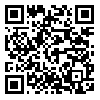Volume 20, Issue 79 (2023)
LIRE 2023, 20(79): 37-42 |
Back to browse issues page
Download citation:
BibTeX | RIS | EndNote | Medlars | ProCite | Reference Manager | RefWorks
Send citation to:



BibTeX | RIS | EndNote | Medlars | ProCite | Reference Manager | RefWorks
Send citation to:
sadeghi mohsenabad H. Discursive Antagonism in War Novels. LIRE 2023; 20 (79) :37-42
URL: http://lire.modares.ac.ir/article-41-65866-en.html
URL: http://lire.modares.ac.ir/article-41-65866-en.html
, sadeghi_hashem62@yahoo.com
Abstract: (2402 Views)
The present study aimed to investigate the discursive antagonism in war novels. To this end, first antagonistic discourses were identified, and then the antagonistic atmosphere and otherness between the discourses represented in the war novels were analyzed: otherness in such novels focuses in part on the foreign enemy (Iraq). In this process, the Iraqi enemy is othered as a disbeliever in an ideological reading based on the discourse of the Islamic Revolution of Iran. Moreover, there is a tendency towards focusing on the enemy’s arms, hence neglecting the agency of its human forces. On the other hand, the liberal and ethnic nationalist discourses are othered as the domestic antagonistic discourses. The liberal discourse strives to deconstruct the idea of public mobilization by using the specialization slogan and defeat the hegemonic dominant discourse by weakening public mobilization. By juxtaposing ethnic values against national interests, the ethnic nationalist discourse strives to substitute ethnic values for national identity markers or give priority to the former. Finally, the Islamic revolutionary discourse becomes hegemonic, succeeding to marginalize the antagonistic discourses, or suppressing the other discourses by its hegemonic interference at times.
Keywords: war novel and discursive antagonism, otherness and war novel, liberal discourse and war novel, ethnic nationalist discourse and war novel.
Article Type: Original Research |
Subject:
Contemporary Literature/ Story / Novel
Received: 2021/01/24 | Accepted: 2021/11/21 | Published: 2023/04/30
Received: 2021/01/24 | Accepted: 2021/11/21 | Published: 2023/04/30
Send email to the article author
| Rights and permissions | |
 |
This work is licensed under a Creative Commons Attribution-NonCommercial 4.0 International License. |









